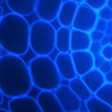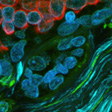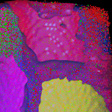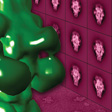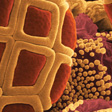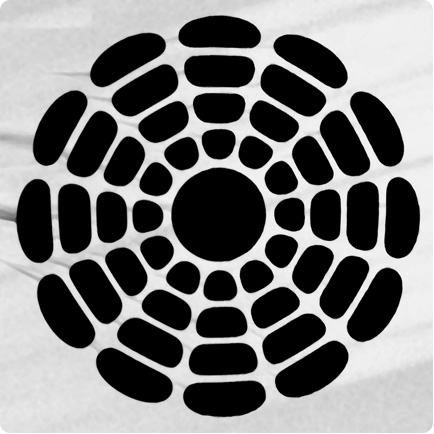 Cross-section of a hollow-core soft glass fibre. It guides light through the black air holes, rather than the grey glass areas. This is also the first fibre that can guide high-intensity mid-infrared light, giving it applications in the medical and defence fields as a sensor for liquids and gases.
Cross-section of a hollow-core soft glass fibre. It guides light through the black air holes, rather than the grey glass areas. This is also the first fibre that can guide high-intensity mid-infrared light, giving it applications in the medical and defence fields as a sensor for liquids and gases.
Visualised using scanning electron microscopy by A/Prof Heike Ebendorff-Heidepriem and Prof. Tanya Monro, University of Adelaide.
Size: the central hole is 24 micrometres across.
Distortion of the air holes during formation initially gave a structure that did not guide light. Rollover the image (left) to see this first unsuccessful design. To overcome this, the scientists came up with a design where all the radial glass strands are aligned. This improvement gave a fibre (above) that allowed guidance of light in an air core in a soft glass fibre for the first time.











